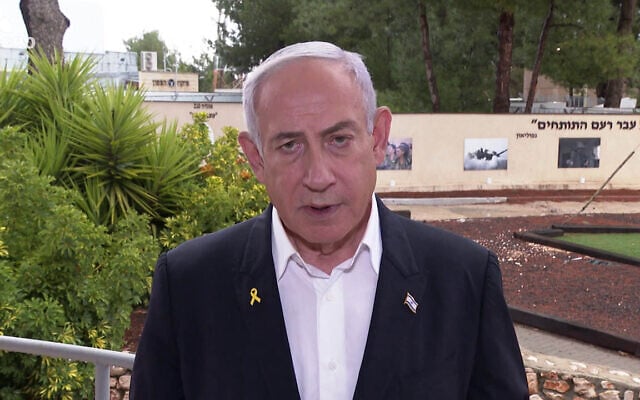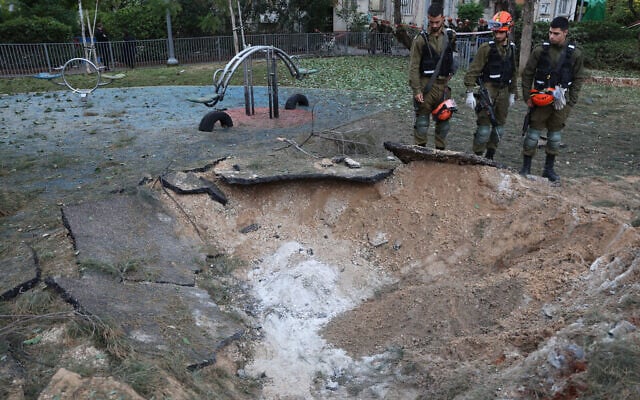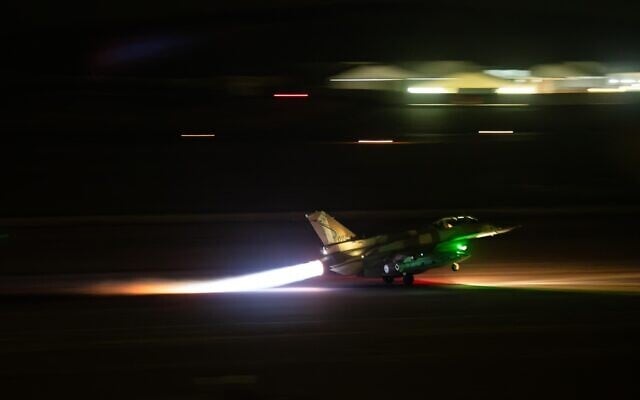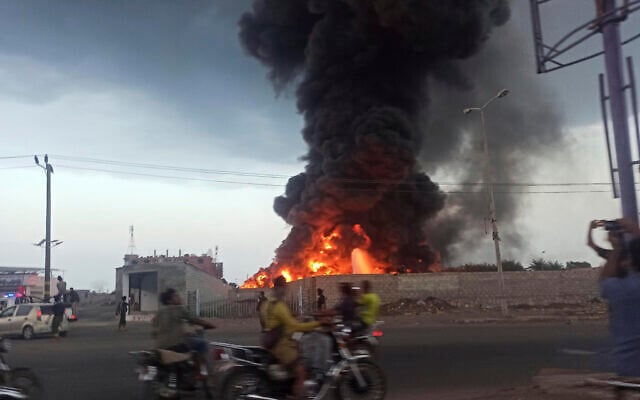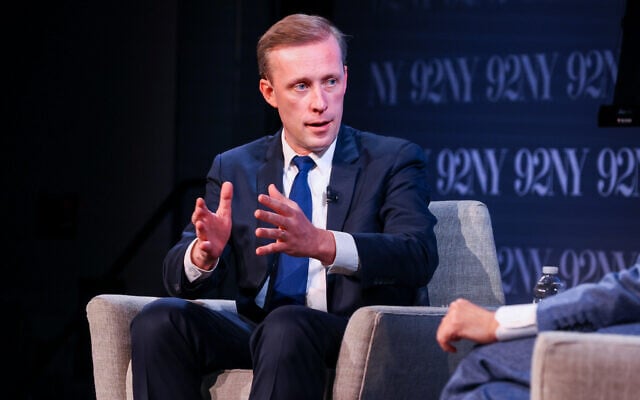Jerusalem Rally Demands Swift Agreement on Hostage Crisis
Hundreds of people gathered to demonstrate for a cease-fire and a prisoner swap deal between Israel and Hamas, on Dec. 21, 2024 in Jerusalem. (Saeed Qaq/Anadolu via Getty Images)
STEVEN GANOT
12/23/2024
Thousands of religious Zionists gathered to urge political leaders in Israel to finalize a deal that would secure the hostages’ return from Gaza
Thousands of religiously observant residents of Jerusalem gathered Sunday at the city’s First Station entertainment complex to call for an agreement that would bring home Israeli hostages held in Gaza, as officials indicated that discussions for a proposed cease-fire and prisoner exchange are near completion. The event was held after a week of negotiations brokered by Egypt and Qatar.
On October 7, 2023, Hamas-led fighters launched a deadly assault in southern Israel, abducting 251 people from their homes, a music festival, and army bases. Of those, 96 are believed to remain in Gaza. Israeli authorities report that 34 of the captives still held in the coastal enclave have been confirmed dead. Negotiators now say that a signed agreement could free a significant number of hostages, including women, children, and older or ill individuals.
Calls for Unity and Urgent Action
We need an agreement that will bring everyone home
During the rally in Jerusalem, speaker after speaker implored political leaders to move forward with a deal. Most of them identified as religious Zionists who wanted to distinguish themselves from voices in Prime Minister Benjamin Netanyahu’s coalition opposing any negotiation with Hamas. Rabbi Mordechai Vardi of Kibbutz Rosh Tzurim in the West Bank’s Etzion settlement bloc told the crowd, “We are in a historic time, a time of national trauma that must be turned to healing, but first, the hostages have to be returned home. We need an agreement that will bring everyone home.”
Go to the Knesset, and tell the politicians that we want a deal
Several bereaved parents also spoke, including those who had lost children in earlier conflicts, and families with loved ones currently in Gaza. Jon Polin, whose son Hersh Goldberg-Polin was executed in a tunnel in late August along with other prisoners, implored the public, “Go to the Knesset, and tell the politicians that we want a deal.” Another speaker, Rabbanit Racheli Fraenkel, lost her teenage son Naftali in 2014 when he was kidnapped and killed with two other boys, igniting that year’s fighting between Israel and Gaza. “We’re here to strengthen and add our voices to our brothers deep in the tunnels,” she said. “Now is the time to free our brothers.”
I feel we’re getting closer and this unity will push closed the gates of hell that opened on October 7
Among the crowd, many attendees wore kipot and head coverings, singing prayers and songs of lament as they waited to hear any sign that a formal accord might be reached. One mother, Leshem Gonen, whose daughter Romi Gonen has been held in Gaza since October 7, shared her perspective as a secular Israeli, describing a journey of unity forged through shared grief. “I feel we’re getting closer and this unity will push closed the gates of hell that opened on October 7,” she said.
Negotiations: 90% Complete?
Multiple sources, including a Palestinian official speaking to the BBC, have said that a hostage release and cease-fire arrangement could be 90% finalized. Reports from Egyptian and Israeli media indicate that one of the key sticking points is a list identifying which hostages are still alive. Israel is waiting for Hamas to produce detailed information so the process can proceed.
Some discrepancies revolve around the status of male hostages that Hamas classifies as soldiers. The terrorist organization has reportedly demanded extra concessions for these captives. According to unnamed sources, Israel wants 11 men included in the first wave of releases, but Hamas seeks “special consideration” for their freedom. The initial round of prisoner exchanges may involve 250 Palestinian detainees in return for children, older individuals, five female soldiers, and potentially other women who were kidnapped.
Discussions are occurring in Doha, Qatar, and Cairo, Egypt, with each side sending working groups. However, the Israeli team in Qatar is not considered a senior delegation. The Security Cabinet in Jerusalem has reportedly received only limited updates, reflecting Prime Minister Netanyahu’s strategy of restricting information to avoid leaks. Defense Minister Israel Katz told legislators, “The less we speak, the better. In my opinion, we are closer to a deal than we’ve been since the last hostage exchange, and it will receive a majority in government if it is brought to a vote.”
Possible Cease-Fire and Military Presence
Jerusalem officials have confirmed that they received “signs of life” from some hostages, but few details have been shared publicly. A senior Israeli official reportedly said the government was prepared for a “prolonged cease-fire,” but not a complete end to military operations in Gaza. Earlier, Hamas demanded the withdrawal of all Israeli troops from the territory, but sources now suggest that the group may accept a partial presence in the Netzarim and Philadelphi Corridors. Both areas have strategic importance: The Netzarim Corridor effectively divides north Gaza from the south, while the Philadelphi Corridor borders Egypt and has been a passage for smuggling.
Egypt’s involvement is driven by President Abdel Fattah el-Sisi’s longstanding role in mediating regional disputes. Negotiations reportedly include provisions for reopening the Rafah Border Crossing under international oversight, and allowing up to 500 trucks of humanitarian supplies to enter Gaza daily. Another aspect under review concerns letting Gaza residents return to the north of the Strip, where large-scale displacement occurred after October 7. Vehicle inspections would likely accompany this process to prevent arms trafficking.
Family Concerns and Partial Releases
Families of those still detained have expressed deep anxiety over the possibility that only a portion of the hostages might be freed in the first phase. Some have argued that splitting the releases could condemn those remaining to further jeopardy. One group described a partial release plan as a “death sentence” for relatives who would stay behind, reinforcing the push for a comprehensive package to free everyone at once.
For its part, Hamas, along with other armed factions such as Palestinian Islamic Jihad and the Popular Front for the Liberation of Palestine, issued a joint statement indicating that an accord could be finalized “provided the enemy stops imposing new conditions.” A Hamas leader told AFP that “most points related to the cease-fire and prisoner exchange issues have been agreed upon. Some unresolved points remain, but they do not hinder the process. The agreement could be finalized before the end of this year, provided it is not disrupted by Netanyahu’s new conditions.”
High-Profile Prisoners and Next Steps
Speculation about whether figures like Marwan Barghouti could be included in the deal has circulated in local media. Barghouti is a prominent Palestinian leader serving five life sentences for orchestrating terrorist attacks during the Second Intifada. He has strong support among younger Palestinians who view him as relatively untainted by corruption. Yet Netanyahu’s office insisted, “The terrorist Marwan Barghouti will not be released if and when a deal is made to release the hostages.”
At the same time, Netanyahu has emphasized caution. During a conversation with US President-elect Donald Trump, he said, “We discussed the need to complete Israel’s victory and spoke extensively about the efforts we are making to bring our hostages home. We are working tirelessly to bring back our hostages, both the living and the fallen. I’ll add that the less we talk about this, the better our chances of success, and with God’s help, we will succeed.”
For many who attended the gathering in Jerusalem, the emotional toll of uncertainty is coupled with a sense of urgency. They see religious teachings, national solidarity, and personal suffering converging into a single demand: End the ordeal of families torn apart by the events of October 7. Whether the negotiations in Doha and Cairo will meet that hope hinges on both sides resolving the final 10% of unresolved issues. Observers say the coming days and weeks may shape the course of a conflict that has already cost countless lives.








